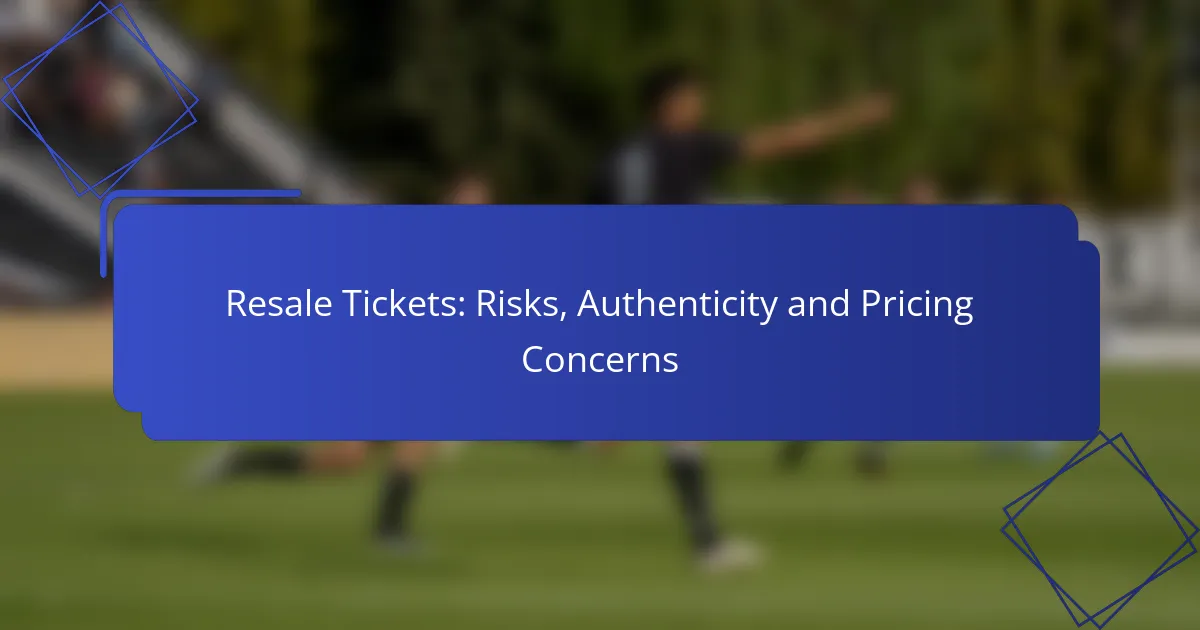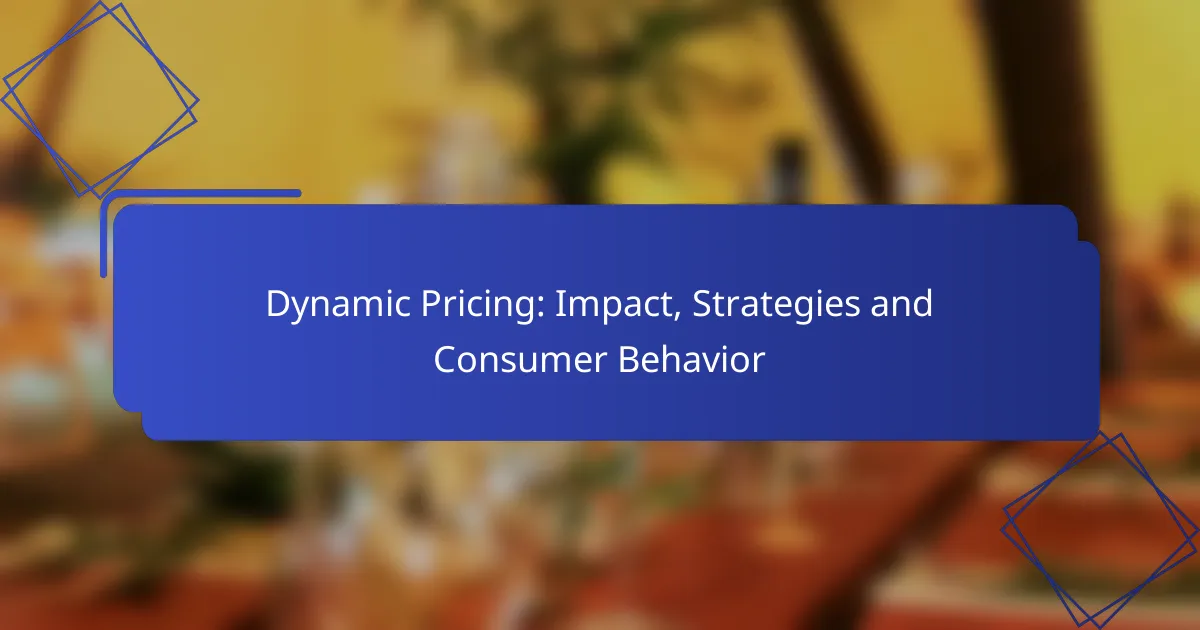Resale tickets can present significant risks, such as fraud, inflated prices, and unexpected cancellations, making it crucial for buyers to navigate these challenges wisely. To ensure authenticity, it’s important to verify tickets through official sources and utilize ticket verification services. Additionally, understanding the pricing dynamics in the resale market can help buyers avoid overpaying and make more informed decisions.
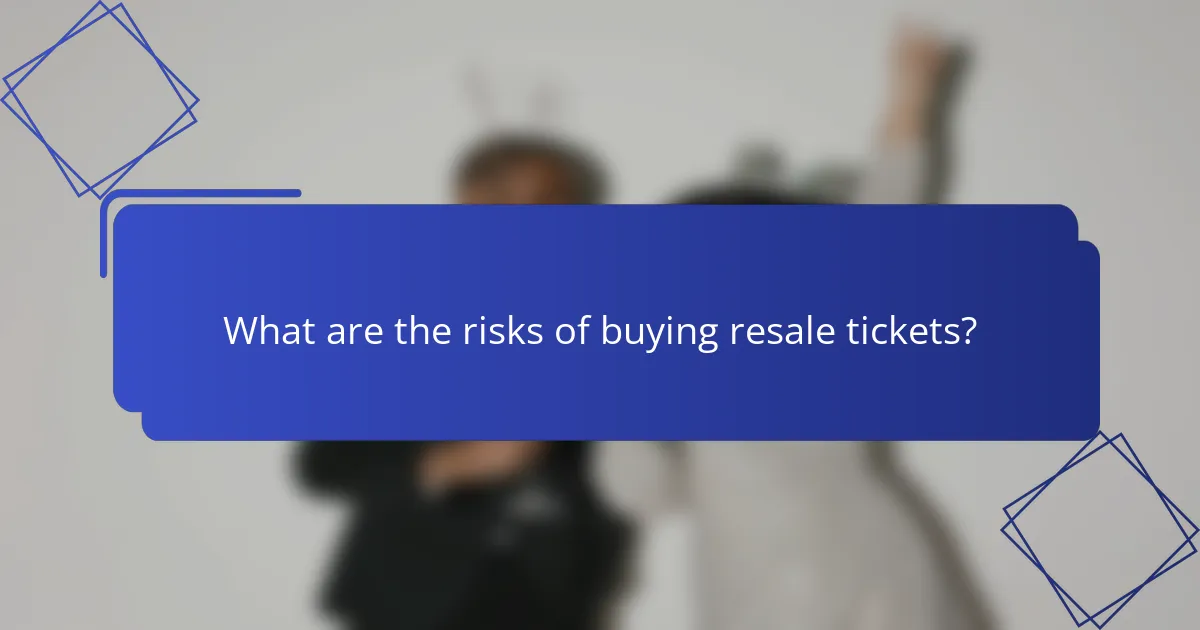
What are the risks of buying resale tickets?
Buying resale tickets carries several risks, including the potential for fraud, inflated prices, and unexpected cancellations. It’s essential to be aware of these issues to make informed purchasing decisions.
Fraudulent tickets
One of the primary risks when purchasing resale tickets is the possibility of receiving fraudulent tickets. Scammers often sell counterfeit or invalid tickets, leaving buyers unable to enter the event. To mitigate this risk, always buy from reputable sources and verify the seller’s credibility.
Look for platforms that offer guarantees or buyer protection policies. If a deal seems too good to be true, it likely is, so exercise caution and do your research before making a purchase.
Overpriced tickets
Resale tickets can often be significantly overpriced compared to their original face value. Sellers may mark up prices due to high demand or limited availability, leading to inflated costs that can range from a few dollars to several hundred. It’s crucial to compare prices across multiple platforms to ensure you’re not overpaying.
Consider setting a budget before shopping for resale tickets. If prices exceed your limit, it might be worth waiting for a better deal or exploring alternative events.
Last-minute cancellations
Another risk associated with resale tickets is the potential for last-minute cancellations. Events can be canceled for various reasons, and if you purchase from an unofficial source, you may not receive a refund. Always check the event’s cancellation policy and the seller’s terms before completing your purchase.
To protect yourself, consider buying tickets from authorized sellers who offer clear refund policies. If you must buy resale tickets, ensure you understand the risks involved and have a plan in case of cancellation.
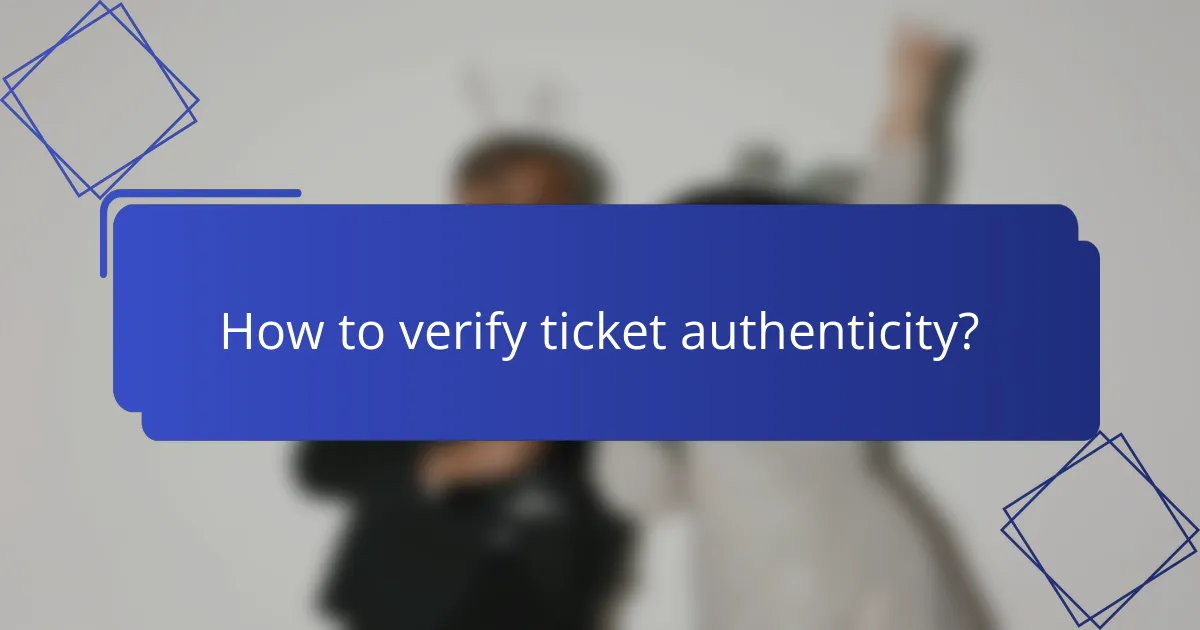
How to verify ticket authenticity?
To verify ticket authenticity, check official sources, use ticket verification services, and examine ticket features. These steps help ensure that the tickets you purchase are legitimate and not counterfeit.
Check official sources
Start by checking the official website of the event or venue. Most organizations provide a list of authorized ticket sellers, which can help you avoid scams. If the ticket is not listed among these sources, it may not be genuine.
Additionally, look for any announcements or updates regarding ticket sales on social media platforms or newsletters from the event organizers. This can provide insights into the legitimacy of the tickets being sold.
Use ticket verification services
Consider using ticket verification services that specialize in confirming the authenticity of tickets. These services often have access to databases that track ticket sales and can verify if a ticket is valid.
Some popular verification platforms may charge a fee, but they can save you from potential losses associated with purchasing fake tickets. Always read reviews and check the credibility of the service before using it.
Examine ticket features
Inspect the physical features of the ticket, such as holograms, barcodes, and watermarks. Authentic tickets usually have specific security features that counterfeit tickets lack. Familiarize yourself with these details by researching the event’s official ticketing guidelines.
If the ticket is digital, ensure that it has a unique barcode or QR code that can be scanned. You can also cross-check the ticket details with the event’s official site to confirm its validity.
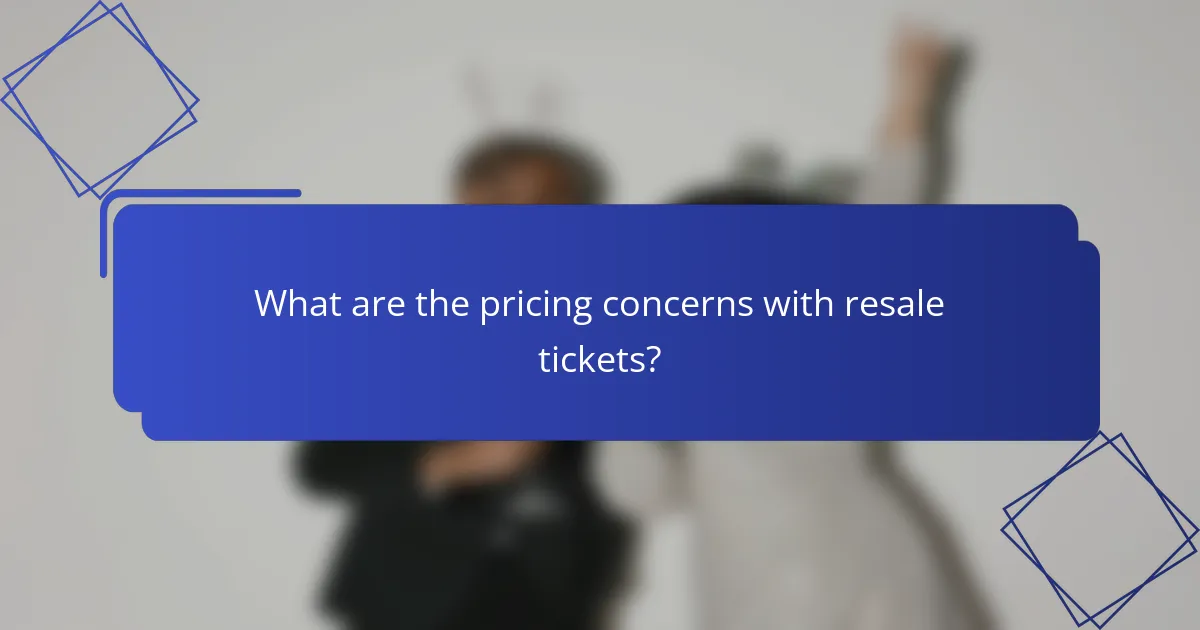
What are the pricing concerns with resale tickets?
Resale tickets often come with various pricing concerns that can affect buyers significantly. These concerns include inflated prices, unpredictable pricing strategies, and the impact of market demand on ticket availability and cost.
Markup on face value
Resale tickets frequently carry a markup on their original face value, which can vary widely. It’s common to see prices that are 20% to over 300% higher than the initial cost, especially for high-demand events. Buyers should be cautious and compare resale prices against the original ticket prices to avoid overpaying.
Additionally, some platforms may charge service fees that further increase the total cost. Always check the final price before completing a purchase to understand the full financial impact.
Dynamic pricing models
Many ticket resale platforms utilize dynamic pricing models, where ticket prices fluctuate based on demand and other factors. This means that prices can change rapidly, sometimes within hours or even minutes, depending on how many tickets are available and how many buyers are interested.
While dynamic pricing can lead to lower prices during off-peak times, it can also result in significantly higher costs during peak demand. Buyers should monitor prices over time and consider purchasing tickets when demand appears to be lower.
Market demand fluctuations
Market demand fluctuations play a crucial role in the pricing of resale tickets. Events with high popularity, such as concerts or major sports games, often see prices soar as the event date approaches. Conversely, tickets for less popular events may drop in price as the event nears.
To navigate these fluctuations, buyers should research past pricing trends for similar events and consider purchasing tickets early or waiting until closer to the event date when prices may stabilize or drop. Being aware of these trends can help buyers make more informed decisions and potentially save money.
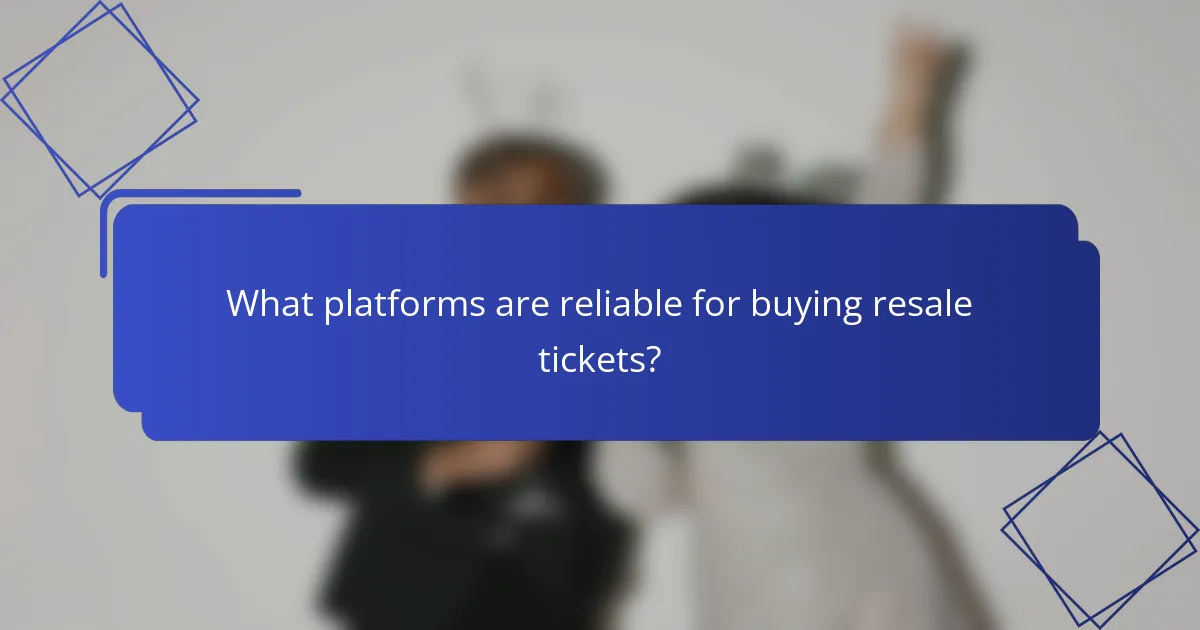
What platforms are reliable for buying resale tickets?
Reliable platforms for buying resale tickets include well-established sites that prioritize security and customer satisfaction. Look for platforms with strong buyer protections, transparent pricing, and positive user reviews.
StubHub
StubHub is one of the largest and most recognized resale ticket platforms. It offers a wide range of events, from concerts to sports, and provides a guarantee that tickets are authentic and valid for entry.
When using StubHub, check the seller’s rating and read reviews to gauge reliability. Additionally, be aware of service fees that can increase the total cost, typically ranging from 10% to 20% of the ticket price.
Viagogo
Viagogo operates globally and allows users to buy and sell tickets for various events. It features a user-friendly interface and offers a guarantee for ticket authenticity.
However, buyers should be cautious of potentially high service fees and fluctuating prices based on demand. Always compare prices across platforms to ensure you are getting a fair deal.
SeatGeek
SeatGeek aggregates ticket listings from multiple sources, providing a comprehensive view of available resale tickets. This platform is known for its “Deal Score” feature, which helps users identify the best value tickets based on price and location.
When using SeatGeek, take advantage of their filtering options to find tickets that fit your budget and preferences. Keep an eye on additional fees, which can vary widely, and consider setting alerts for price drops on specific events.
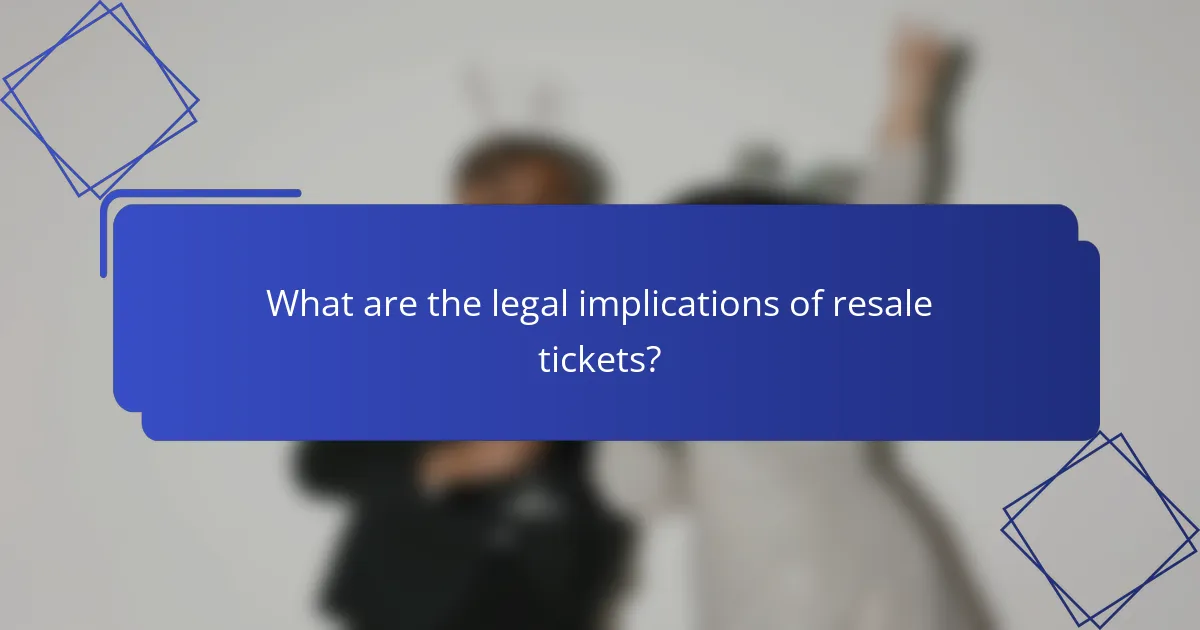
What are the legal implications of resale tickets?
The legal implications of resale tickets vary significantly by region and can impact both sellers and buyers. Understanding these laws is crucial to avoid penalties and ensure the authenticity of tickets purchased on the secondary market.
State regulations
State regulations governing ticket resale can differ widely across the United States. Some states require sellers to obtain a license, while others impose limits on markup percentages for resale prices. For example, in New York, ticket resellers must register and adhere to specific pricing rules, whereas states like Texas have fewer restrictions.
It’s essential for both buyers and sellers to familiarize themselves with local laws to avoid legal issues. Checking state-specific regulations can help ensure compliance and protect consumer rights.
Consumer protection laws
Consumer protection laws play a significant role in the resale ticket market, aiming to safeguard buyers from fraud and misleading practices. Many jurisdictions have enacted laws that require sellers to disclose essential information, such as the original price and any fees associated with the ticket.
Buyers should be cautious and verify the legitimacy of resale platforms. Utilizing reputable sites that offer guarantees or buyer protection policies can mitigate risks associated with counterfeit tickets. Always read the terms and conditions before making a purchase to understand your rights and recourse options.
